Content

Alumni Enews, Winter 2018
- New location for six CAS units
- Student Spotlight
- Alumni Spotlight
- Celebrating our legacy
New location for six CAS units
Beginning this past fall, six units began their move to the renovated third floor of the newly named Louise Pound Hall. Faculty and staff will reside in the building vacated by the relocated College of Business, formerly known as the College of Business Administration and Social Sciences Hall:
- Department of Classics and Religious Studies
- Department of Communication Studies
- Department of Philosophy
- Institute for Ethnic Studies
- Norman and Bernice Harris Center for Judaic Studies program
- Women's and Gender Studies program
The re-naming of the building, located at 12th and R streets, honors the legacy of Nebraska alumna Louise Pound (1872-1958), the renowned literary scholar, athlete, musician, and 48-year faculty member of the Department of English. The Board of Regents approved the new name during a June 28, 2018 meeting.
The relocation to Louise Pound Hall will enable the departments and programs to expand their academic, research and extracurricular programming in a shared, interdisciplinary space.
“We anticipate this space will foster collaboration among faculty and enhance synergies among interdisciplinary programs and departments,” Assistant Dean for Business and Finance Alecia Kimbrough explained. “We will also benefit from efficiencies through our newly reorganized support staff that will be co-located.” Among the expanded facilities made possible by the renovation are the Communication Studies Interactions Lab and increased space for the college’s award-winning Speech and Debate team.
The departments and programs are scheduled to complete their move to Louise Pound Hall prior to the end of the fall semester, with classes beginning there in January of 2019.

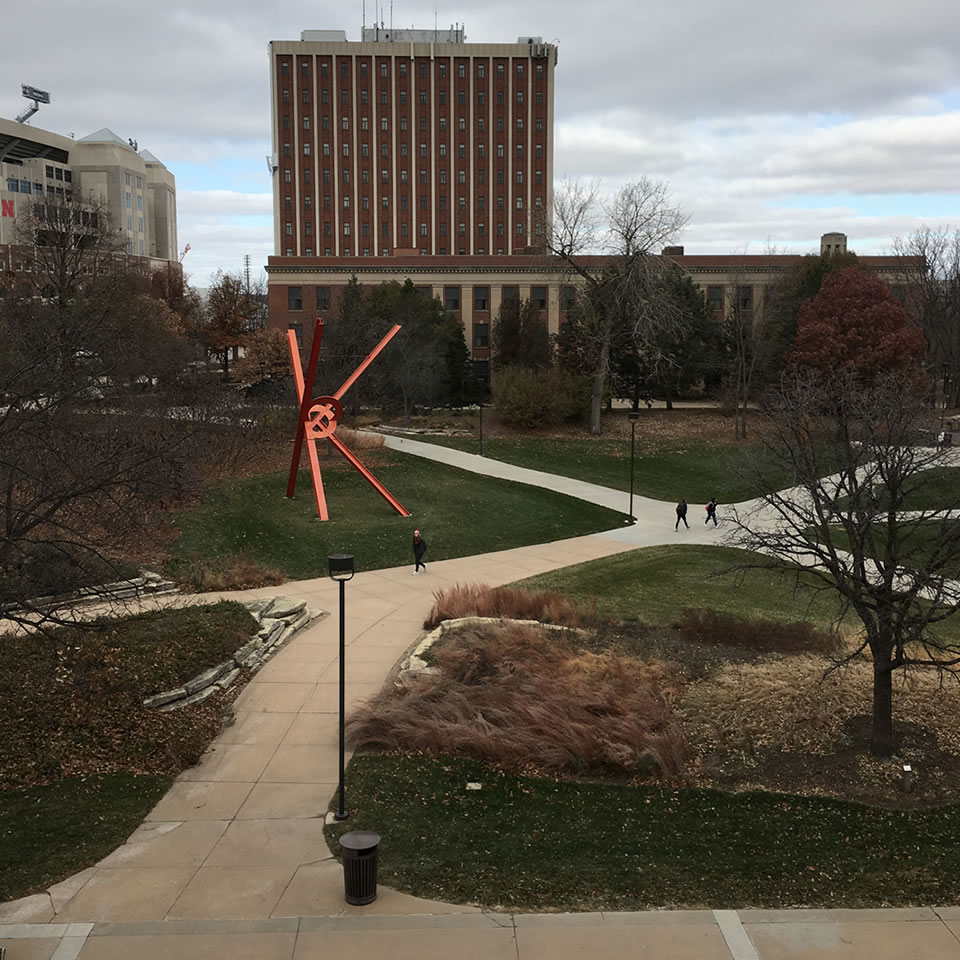
Oldfather Hall from Pound Hall
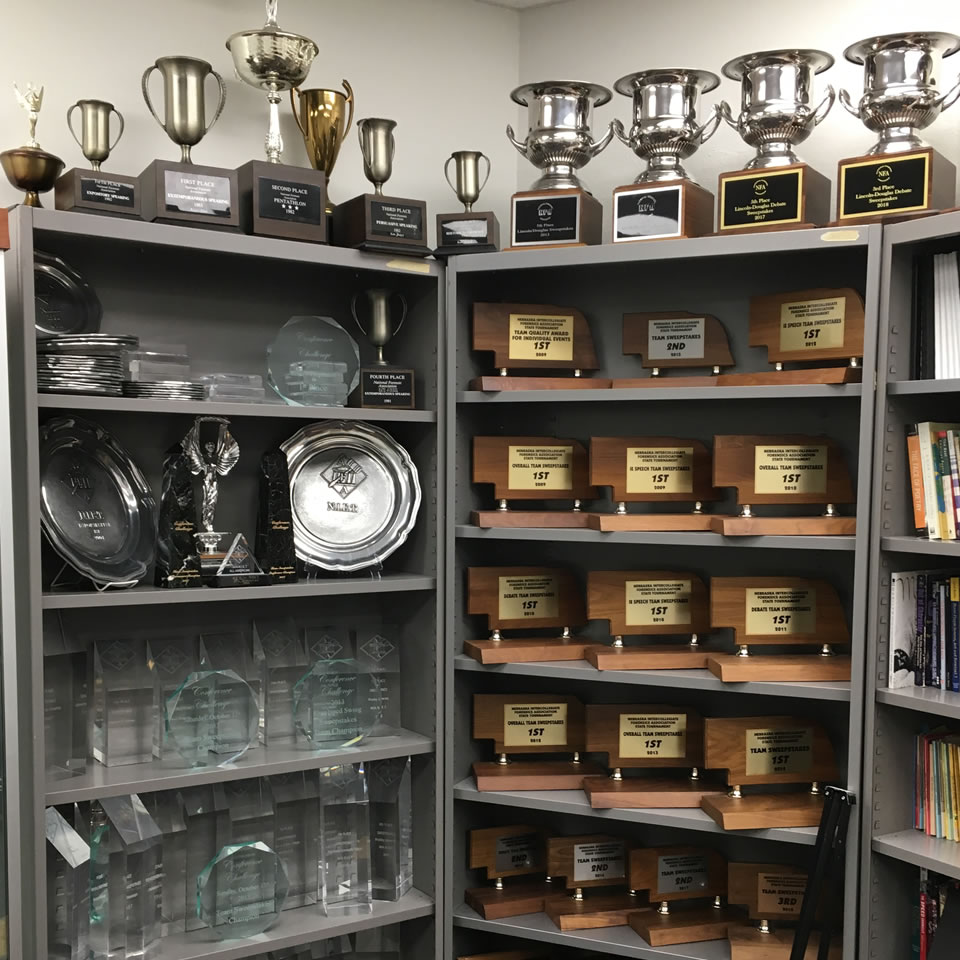
Speech and Debate Team awards
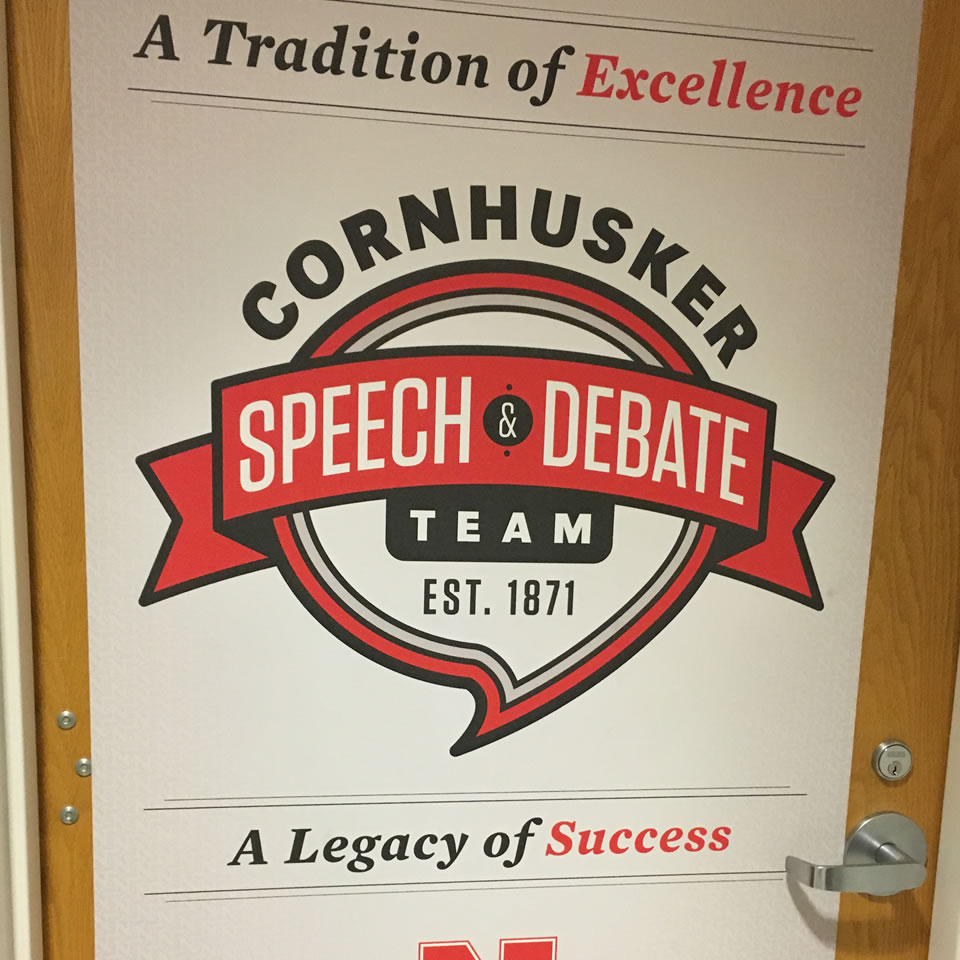
Speech and Debate Team poster
Student Spotlight
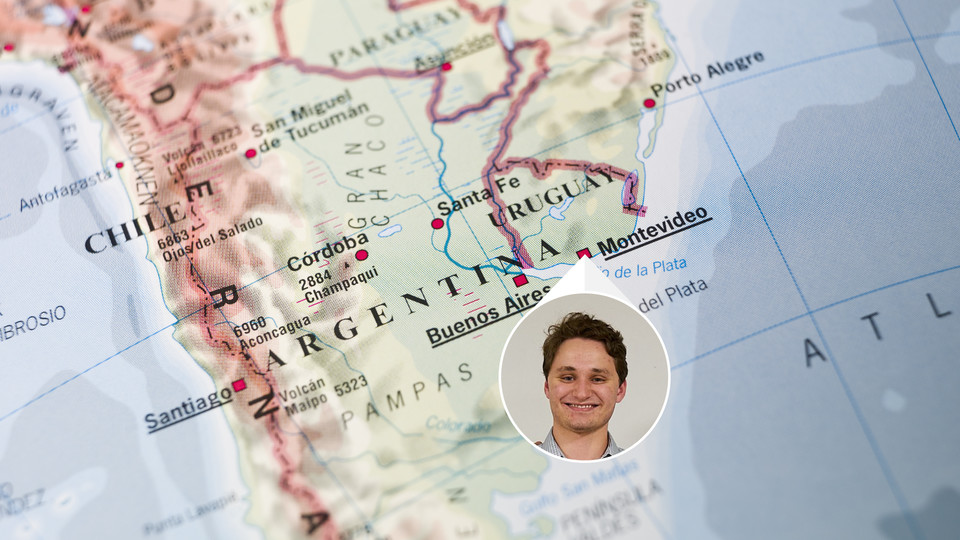
Student ambassador Cooper Wright, a junior from Windsor, Colorado majoring in global studies and political science, is currently completing an internship with the United States Department of State at the United States Embassy in Uruguay. He previously, studied abroad in Spain and Morocco.
He is also a 2018 Cargill Global Scholar, one of only 10 in the United States. Cargill's program is designed to build a network of leaders who will contribute to business, agriculture, and food security. Scholars receive financial support, leadership training and mentoring.
Wright shared about his experiences at Nebraska, future plans, and what advice he'd give to high school seniors.
How are you showing your Nebraska grit overseas?
I am currently completing an internship in Montevideo, Uruguay, while also enrolled in online classes at the University of Nebraska-Lincoln. As part of my responsibilities, I assess trends regarding education, the relationships between China, the United States and Uruguay and other tasks. I also have the opportunity to travel with Ambassador Kelly Keiderling as she makes some visits to the northern parts of the country.
What is your dream job and why?
My dream job is to be a Foreign Service Officer for the U.S. Department of State within Political Affairs. As a Foreign Service Officer, I would like to serve primarily the Latin American and Middle Eastern Regions, as well work for the Bureau of Population, Refugees and Migration; Bureau of Counterterrorism and Countering Violent Extremism; and the Office of Global Food Security, among others. I have always been interested in politics, geography, culture, language, et cetera, but through my designated courses of study at Nebraska, I have been able to narrow it down to a specific career path.
What other experiences have you found most valuable at the university?
Some of the most valuable experiences during my time at Nebraska have been my study abroad experiences in Granada, Spain, and Meknès, Morocco, and now my internship here in Uruguay. I have also been able to take advantage of opportunities at the Nebraska Legislature, most notably my experience interning for Sen. Tony Vargas, an admirable representative for District 7. I have also found the Nebraska chapter of Model United Nations beneficial and had the opportunity to represent the university at the National Model United Nations Conference in New York City last March.
What compelled you to apply for the Cargill Global Scholars Program?
Before applying, I had limited knowledge about Cargill. My adviser in Global Studies, Emira Ibrahimpasic, encouraged me to apply as I had been continuously looking for more opportunities on an international scale. For someone who wants to work internationally, I thought I would benefit from the domestic and international mentorship component of the program. One of the features of an increasingly globalized world is the growth of multinational corporations such as Cargill, and I knew I would benefit from learning about one of the largest multinational corporations in the field of agriculture. I had extensive leadership training at the In-Country Seminar in June at Cargill Headquarters in Minneapolis. I am looking forward to the International Seminar, where I will have the opportunity to connect with more Cargill executives and the Global Scholars from Brazil, China, India, Indonesia and Russia.
How does the Cargill scholarship and its connected opportunities fit into your overall education and career goals?
The work that Cargill does has far-reaching global influences. For example, Cargill has sought to help lift women out of poverty through global partnerships such as the ONE campaign. Some of the issues that Cargill has chosen to focus on are issues that I would like to focus on in a career for the government. The Cargill program enables networking with high-level executives and similarly minded individuals from six countries, many of whom I could see myself working with some day.
What would you tell high school seniors right now about chasing their goals and dreams?
I would suggest high school seniors be open to different career and academic opportunities. The Cargill Program specifically has opened my eyes to working more with agricultural development and natural resources. As a high school senior, I never thought I would consider a highly prestigious role working in our government, such as that of a Foreign Service Officer. Through seeking out resources on campus, this dream has become more realistic. I attribute most of my success thus far in my college career to two people – Emira Ibrahimpasic in the Global Studies Program and Laura Damuth from the Fellowships Office. Both individuals have continuously encouraged me to seek out opportunities and have aided in my efforts to do so. They care tremendously that the students they work with achieve exactly what they set out to do. I could not have had all of these amazing opportunities without them.
Alumni Spotlight
For most, life does not travel in a straight path. The road can be curvy and unpredictable with unexpected discoveries along the way—a fitting description of College of Arts and Sciences alumnus George Hinman’s life both as an undergraduate in the history program and in his career path after graduating in the summer of 1976.
“In the interest of full disclosure, my academic career at UNL was anything but ‘typical’,” Hinman, a retired attorney, reflects. “My first four years at the university, I did not, in the parlance of the time, apply myself.“
Hinman – who serves on the CAS Advisory Council – explains that the late 1960’s were an extraordinarily vexing period in the U. S.. “There was an unpopular war in Vietnam being fought by young men, many of whom had been drafted,” he notes. “The late 1960’s saw political, religious and civil rights leaders assassinated, which resulted in demonstrations and civil disobedience. It was a tumultuous time in American history.”
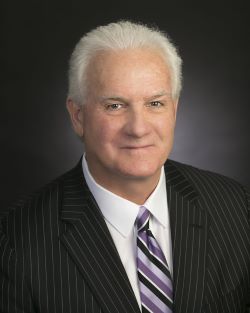
So Hinman chose an unconventional path to learning. “At that time, many people my age, in Nebraska and elsewhere, decided to leave school for a period of time, to travel and learn more about the world outside of their state and national border,” he recalls. “I was one of them.”
Hinman flew to Amsterdam in February of 1972, then traveled south to the island of Hydra in Greece. He spent most of the next four years living in Europe.
“I found a job working at a ski lift in a resort in the French speaking part of Switzerland for two winters and spent three summers on Hydra,” Hinman says. During these summers he found work unloading the supply boat that came every week from the port city of Piraeus. “We unloaded cement to wine and everything in between,” he recalls.
During this time, Hinman worked and lived with people from all over the world – Japan, Holland, Germany, South Africa, Australia, France, Sweden, Canada, Italy, England, and many other countries. “The conversations I had with that group of people and the books I read during my travels developed an interest in history – particularly ancient history – having visited so many of the ancient ruins in Greece,” he reflects.
Among the historical sites Hinman visited were Mycenae, Epidaurus, Rhodes, Sparta, Monemvasia, Delphi, and Crete. “I read a lot of books during those years and decided I wanted to study history when I returned to UNL. And when I came back to school after several years living in Europe, I was forced to make up for lost time and study hard to receive “A” grades to improve my grade point average if I wanted to be accepted into law school.”
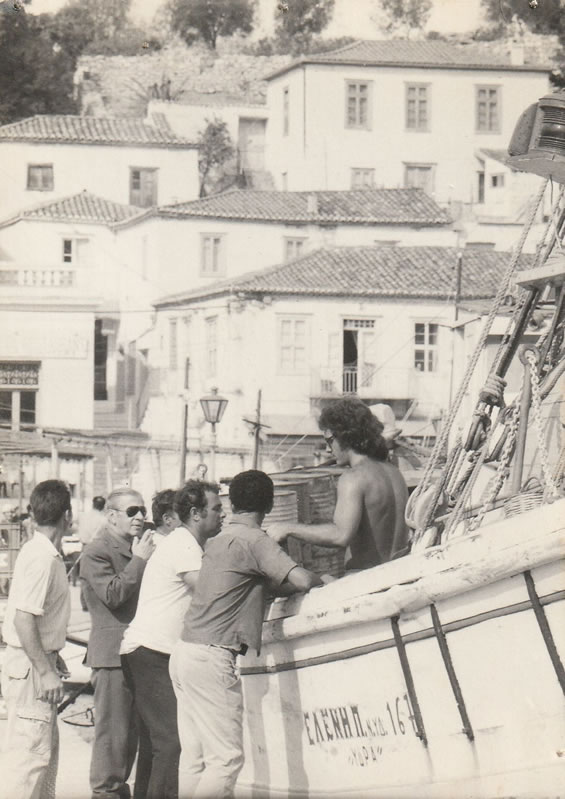
Hinman (right) working in Hydra, Greece, unloading the weekly boat from Piraeus.
After completing his undergraduate degree, Hinman’s path led him to California Western School of Law, a private law school in San Diego with his travels as a foundation. “My emphasis was international law,” he explains. “I had success in law school and was editor-in-chief of the International Law Journal my third year of law school.”
He was accepted into the Master of Laws (LLM) program at Queen's College, Cambridge, but could not come up with sufficient financing to attend and ended up practicing law in San Diego as a litigator for 30 years.
Hinman credits his time at Nebraska as an integral part of his personal and academic growth. “My liberal arts education nurtured my curiosity by exposing me to subjects in disparate fields of study,” he explains. “I believe a liberal arts education leads not only to success professionally but success in life, by developing people who lead engaging lives outside of their profession.”
Hinman also notes that the foundation he received in the College of Arts and Sciences served him well in law school and beyond. “My liberal arts education developed my analytical, critical thinking and my written and oral communication skills,” he notes. “These are all vital to success in the practice of law.”
Hinman adds that the diverse areas of study he experienced, the amount of reading and writing required, and the give-and-take of classroom discussions helped develop the skills he needed to be a successful attorney. “A liberal arts education presents students with contradictory opinions from different viewpoints, forcing in-depth examination and critical distillation of information,” he explains.
Although there continues to be a national and international emphasis on the value of an education in science, technology, engineering and math (STEM), Hinman strongly believes that the liberal arts also play an essential part in providing a foundation for learning in all professional fields.
“The skills of liberal arts graduates are increasingly in demand around the world,” Hinman notes. “Surveys in China and Japan – cultures long held as supporting regimented learning – have begun to show that employers there are complaining about the inflexibility of a work force educated without a focus on creativity or problem solving. One third of Fortune 500 CEOs have liberal arts degrees.”
For this reason, Hinman advises students to embrace the opportunity to learn how to think critically and creatively and focus on proficiency in written and oral communication. “Take classes where you are required to read a lot, required to write a lot, required to express yourself in front of your fellow students, and required to defend your positions when other students take contrary views,” he urges.
Harkening back to his early years living and working abroad, Hinman suggests: “Given the increasing global nature of the marketplace, learn a foreign language.”
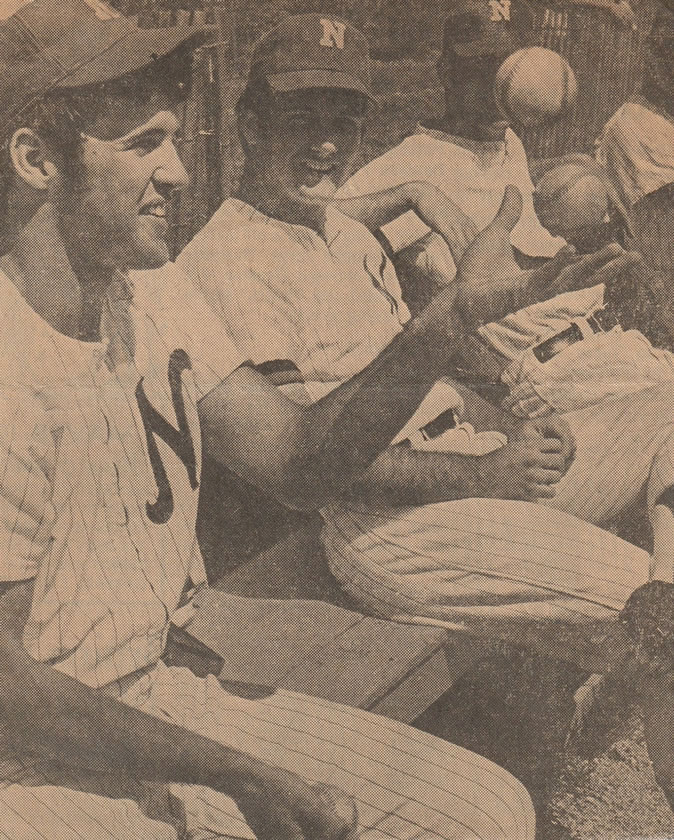
Hinman playing baseball for Nebraska.
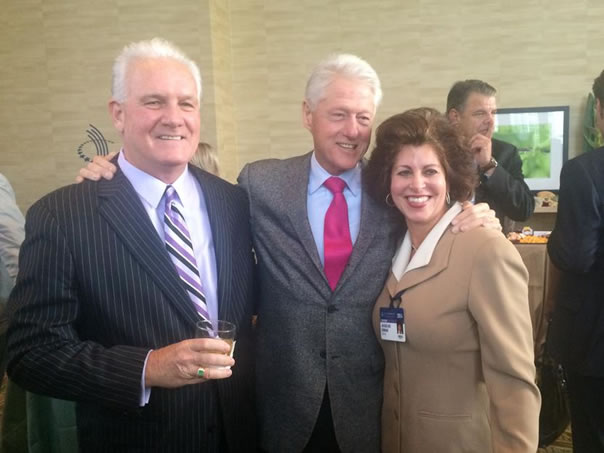
Hinman with his wife Jacque and President Bill Clinton.
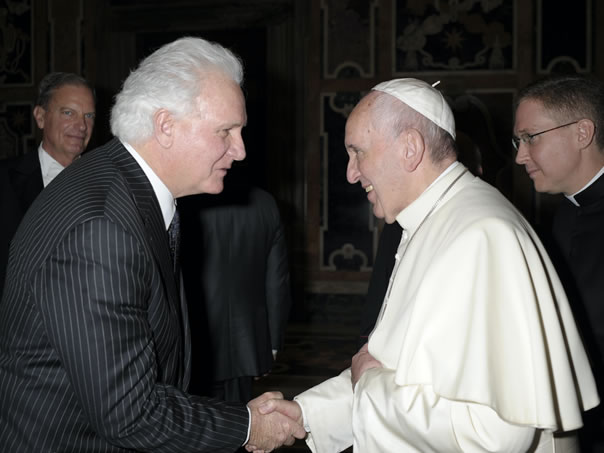
Hinman meeting Pope Francis.
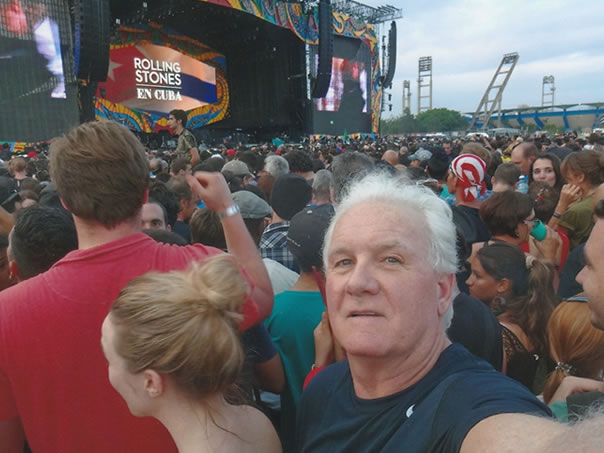
Hinman at a Rolling Stones concert in Havana, Cuba.
Celebrating our legacy
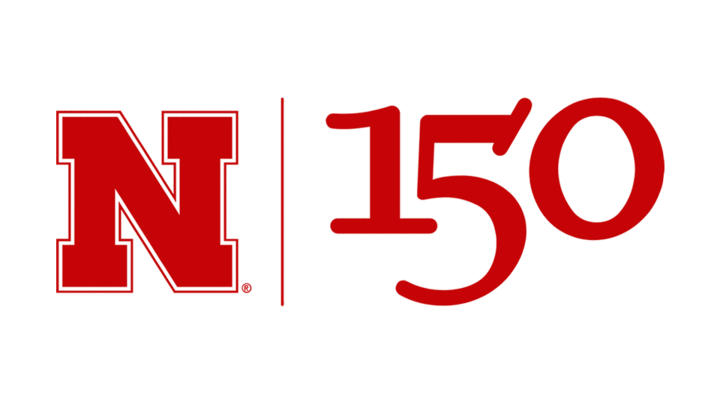
The University of Nebraska was chartered on February 15, 1869 and charged with its land-grant mission of public education and service to Nebraska. In 2019, it will celebrate a 150-year legacy of improving the quality of life for Nebraska and beyond with numerous events.
Charter Week is a lineup of special events and tributes during the week of February 11-15, 2019. Events include Husker Volunteer Challenge, 24 Hours of Giving, the Celebration of Music and Milestone, and other events.
Additionally, a comprehensive group of more than 150 leaders have met throughout 2018 as the Nebraska Commission of 150 to chart Nebraska’s future. These faculty, staff, students, alumni, and other external stakeholders are revising our mission and values statements and developing our strategic goals that will direct our path toward distinction and impact for the next 25 years.
Will Thomas, Department of History, is co-chair of the committee, and the college is represented on the Executive Committee and every subcommittee by 16 faculty and six students.
Learn more at the N150 website and stay connected.